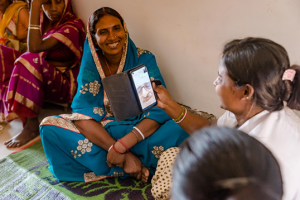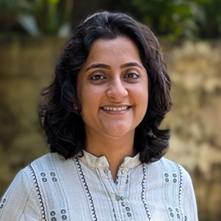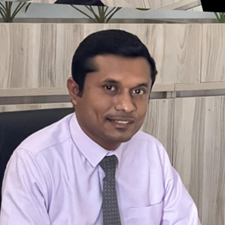
A technical collaboration between WHO and Intelehealth surrounding the use of Telemedicine and its transformational impact on Low and Middle Income Countries
Telemedicine: A Vital Solution for Global Health Equity
Telemedicine is a game-changer in modern healthcare, providing remote diagnosis and treatment to those who would otherwise go without care. For people in LMICs, where 40% of healthcare facilities lack essential medicines and rural patients may travel hours to reach a doctor, digital health solutions can be the difference between receiving timely treatment or facing preventable complications. Cost remains another major barrier—many families forego care due to high out-of-pocket expenses, transportation costs, and lost wages from seeking treatment. Women, in particular, face compounded challenges, with 90% unable to make independent healthcare decisions and many citing distance and affordability as reasons for delaying care. Telemedicine breaks these barriers, offering affordable, convenient, and effective healthcare solutions that empower individuals—especially women—to seek timely medical attention. Through our partnership with WHO SEARO office, we are working to build the capacity of governments to integrate telemedicine into national health systems, ensuring that healthcare is not just a privilege, but a right accessible to all
Bridging the Healthcare Gap: Intelehealth’s Collaboration with WHO
Intelehealth is proud to partner with the World Health Organization (WHO) to advance telemedicine as a critical solution for bridging healthcare gaps in low- and middle-income countries (LMICs). Globally, at least half of the world’s population lacks access to essential healthcare services, with geographic distance, financial constraints, and a shortage of trained medical professionals posing significant barriers. These challenges disproportionately affect women, who often face restricted mobility, limited financial independence, and systemic barriers to seeking care. Through this collaboration, Intelehealth and WHO are launching a comprehensive webinar series designed to equip governments with the knowledge, tools, and best practices to develop scalable, standards-compliant telemedicine programs. In alignment with WHO’s mission to promote health and serve the vulnerable, and Intelehealth’s vision of ensuring healthcare access where there is no doctor, this partnership aims to transform healthcare equity worldwide, bringing life-saving care to millions—no matter where they live.
The WHO Technical Collaboration for Telemedicine will undertake the following key activities:
- 1. Monthly Webinars
- 2. Guideline Development
- 3. Training and capacity building
- 4. Research and Innovation
- 5. Policy and Advocacy
- 6. Technology support
- 7. Implementation support
Intelehealth provides necessary expertise and infrastructure to set up and run the collaboration and WHO forms a steering committee for the collaboration comprising representatives from WHO, SEARO member states, and other stakeholders.
The proposed WHO Collaboration for Telemedicine in the SEARO region represents a strategic initiative to leverage technology for improved healthcare delivery. By fostering collaboration, innovation, and capacity building, the center will contribute significantly to the health and well-being of populations across the region, while providing substantial benefits to WHO in terms of leadership, impact, and resource optimization.
Image of the webinar poster – Webinar 1 – Registration Link
Speakers photos and profiles (Let’s add them already – follow up with others in this week)
Dr. Neha Verma

Neha is the Co-founder and CEO of Intelehealth, a telemedicine technology non-profit that delivers health services where there is no doctor. She is an entrepreneur and medical information engineer. She earned an MS in Applied Health Sciences and a PhD in Health Informatics from the Johns Hopkins University School of Medicine. Neha is also an active contributor for Women@Forbes, writing about women in tech, product development, organizational strategy, social impact and nonprofits.
Dr. Gumindu Kulatunga (need a brief description)

MBBS, MSc, Dip Occu. Health, PG cert. (Med.Ed). MD(HI) MCGPIMFCI (UK)
Dr. Gumindu is a Consultant in Health Informatics at the Health Information Unit, MDPU, Ministry of Health, Sri Lanka. A specialist medical doctor in Health Informatics and a primary care physician, he brings extensive experience in digital health, public health, medical education, research, and primary care. With a strong academic background, including multiple postgraduate qualifications, his expertise spans telemedicine, electronic health records, clinical decision support systems, UX design, and capacity building in digital health. Dr. Gumindu is passionate about leveraging technology to enhance healthcare delivery and professional development.
Dr. Karthik Adapa

Dr. Karthik Adapa is the Regional Adviser, Digital Health, WHO-South East Asia Regional Office. Prior to joining WHO, Dr Adapa was Secretary to the Government of Punjab, Department of Health, and Family Welfare. Dr. Adapa is a physician-scientist with a master’s degree in public policy and public health and a Ph.D. in health informatics from the University of North Carolina-Chapel Hill. Dr. Adapa is a practitioner, researcher, and educator.
Dr. Vinay Botra (need a brief description )

Webinar video (30 minute)
WHO logo
